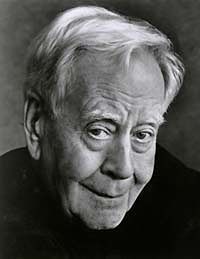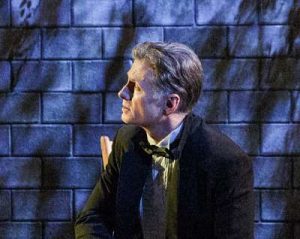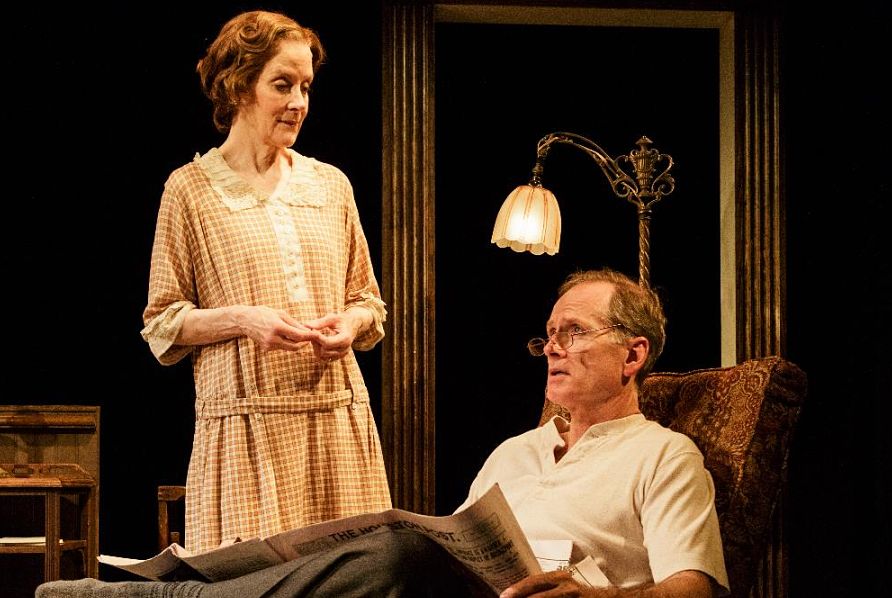As part of a celebration of what would have been late playwright Horton Foote’s 100th birthday year (he died in 2009), New York City’s Primary Stages—a frequent berth over the years for Foote’s work—is mounting a revival of The Roads to Home, a Chekhovian comic drama about three women living in Houston, Texas in the 1920s. The production, directed by Foote specialist Michael Wilson, features two cast members from its original 1992 production, the playwright’s daughter Hallie Foote and Devon Abner, though now they are playing older characters than before. Below each reflects on their journey with this play and on Foote’s timeless work. The Roads to Home runs at the Cherry Lane Theatre, Sept. 14-Nov. 27.
One Big Funny, Sad Family

The Roads to Home is a metaphysical exploration. What is home? Where do we exist in terms of home? Is it something we long for inside ourselves or can it be found in the physical place we end up in? The three women in this play each struggle with that idea in different ways.
Two of the women, Vonnie and Mabel, are living in Houston, displaced from their original homes, and are constantly trying to find ways to settle into a new life. The third woman, Annie Gayle, is facing the loss of everything that connects her to home: her children, a husband, her actual physical home. All three connect in the first scene of the play and all the things that identify and define each of them kind of come crashing together. Mabel and Vonnie are filled with their memories of the two small towns they grew up in: Harrison, Texas, and Monroe, Louisiana. Annie is obsessed with sorting out a tragedy that happened when she was living in Harrison. As an audience we get taken on a ride that incorporates not only a tragedy that occurred, but also vivid experiences of life in small towns—in all towns or cities, for that matter. By the end of the play, Annie ends up in a very different place. But it is a home of sorts.
The play is funny and sad. But that is so true of all my father’s plays. And it is so terribly human. I always feel like I have a little bit of all of his characters inside me. I understand and relate to each and every one of them. Because their experiences are my experiences. Their mistakes are my mistakes. We are all just trying to figure out how to get through life and are doing the very best that we can.
Working with the actors on The Roads To Home has been really joyful. We feel like a family and I can’t think of any other place I’d rather be than at the Cherry Lane Theater in a play with these actors. Michael Wilson has directed so many of my father’s plays. My father loved his theatrical sense. He always said that the theatre has been influenced by movies, and Michael’s productions always have a kind of cinematic feel to me. Michael gets the “bigness” of my father’s writing. He understands that it isn’t limited to just one place. He always goes on the ride with my father and brings out the universal quality of his writing.

Even though my father writes about a town, a region, he isn’t a regional writer. He truly is a kind of American Chekhov. Houston in this play is kind of like Moscow. It is always touching to me when someone from another part of the U.S. or from another country comes up to me and says, That’s my mother or father or brother or sister, or those are my parents, or that is my family your father is writing about. It is so understandable to me, because really, we are just one big family. We all long for the same things.
The first time I was in The Roads To Home with Devon was a very sad and stressful time for me. My mother, Lillian, passed away during our out-of-town run and I almost felt like I was having an out-of-body experience. But all the actors were very protective of me and my father. We were a family. They were all leading me home every night. Devon in particular made sure I was okay. He can be as quiet as Dave, the character he plays. He really listens. I found that beautiful and comforting every night we were onstage together. For those months, my time spent in the theatre became a healing place for me. A kind of refuge.
This time I am flooded with memory. And how quickly time has passed. I have so many memories of our 1992 production, but this one has its own beauty and rhythm and makes me happy. My father’s work has a timeless quality to it; this production of The Roads To Home has only increased my appreciation of that. Now Devon and I are playing the oldest characters in the play. Happily, I might add. We now have a home together, which this play helped make happen. I listen to the last act from my dressing room every night and sometimes think about being with this quiet, attentive, gentle man 24 years ago, who let me sort out a lot of pain and sadness while he simply listened.
Devon Abner: Watching Foote Watch Us

When Horton directed the ’92 production of The Roads to Home, one of the highlights for me when I wasn’t onstage was peeking through a curtain that looked out to the audience from behind the actors. I loved watching Horton in the back row, and even more so, watching him listen to his own play. I think it put him in another world. Maybe it was bringing himself back to listening to his mother and her friends, but it seemed like a very peaceful reverie for him. Sometimes he would mouth the words with a slight smile. No one else could see that. He was a wonderful director who was trained by some of the great Russian actors from the Moscow Art Theatre, and I learned so much about acting from him over the years.
The Roads to Home is set in Texas in the 1920s, when people have had to move from their hometowns to the big city of Houston. There’s emptiness among people about city life. Many are dislocated emotionally from the move, and most long for home. Home was very important to Horton; most of what he wrote about was set in his hometown of Wharton, but his other home was the theatre—and I think his favorite home was Primary Stages. He loved Casey Childs and Andrew Leynse and how they took care of him and his plays, let him run with them. I know a highlight for Horton was directing the Primary Stages production of his daughter Daisy’s play When They Speak of Rita, which also featured Hallie in the cast.
In ’92, when I sat on the bench as the silent Dave in that same second act, I loved to listen to Hallie playing Annie. There was a point near the end of the play when we were alone onstage and her character discovered something, and I could feel a wave of energy, a gasp of recognition, coming from the audience. It happened every night and it was amazing.
And while I loved listening to Horton’s play then, this time I’m much more aware of how beautifully constructed it is. After two months with this production, I’m still finding these great leitmotifs and issues that compel most of these characters. Back then, I could have asked Horton about them: Was he aware of them while he was writing, or did it mostly just fit and flow? Now I can only marvel at his talent.


